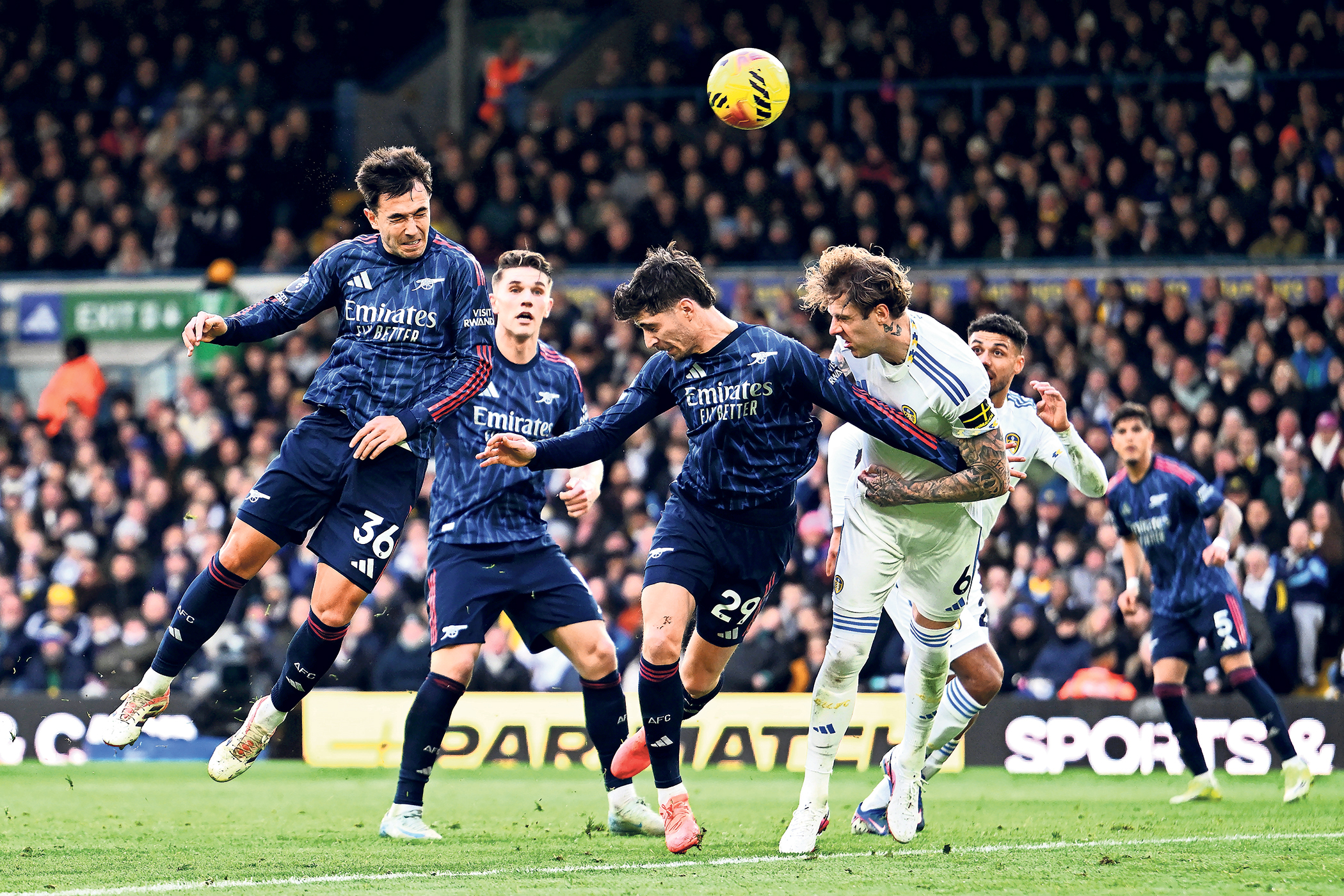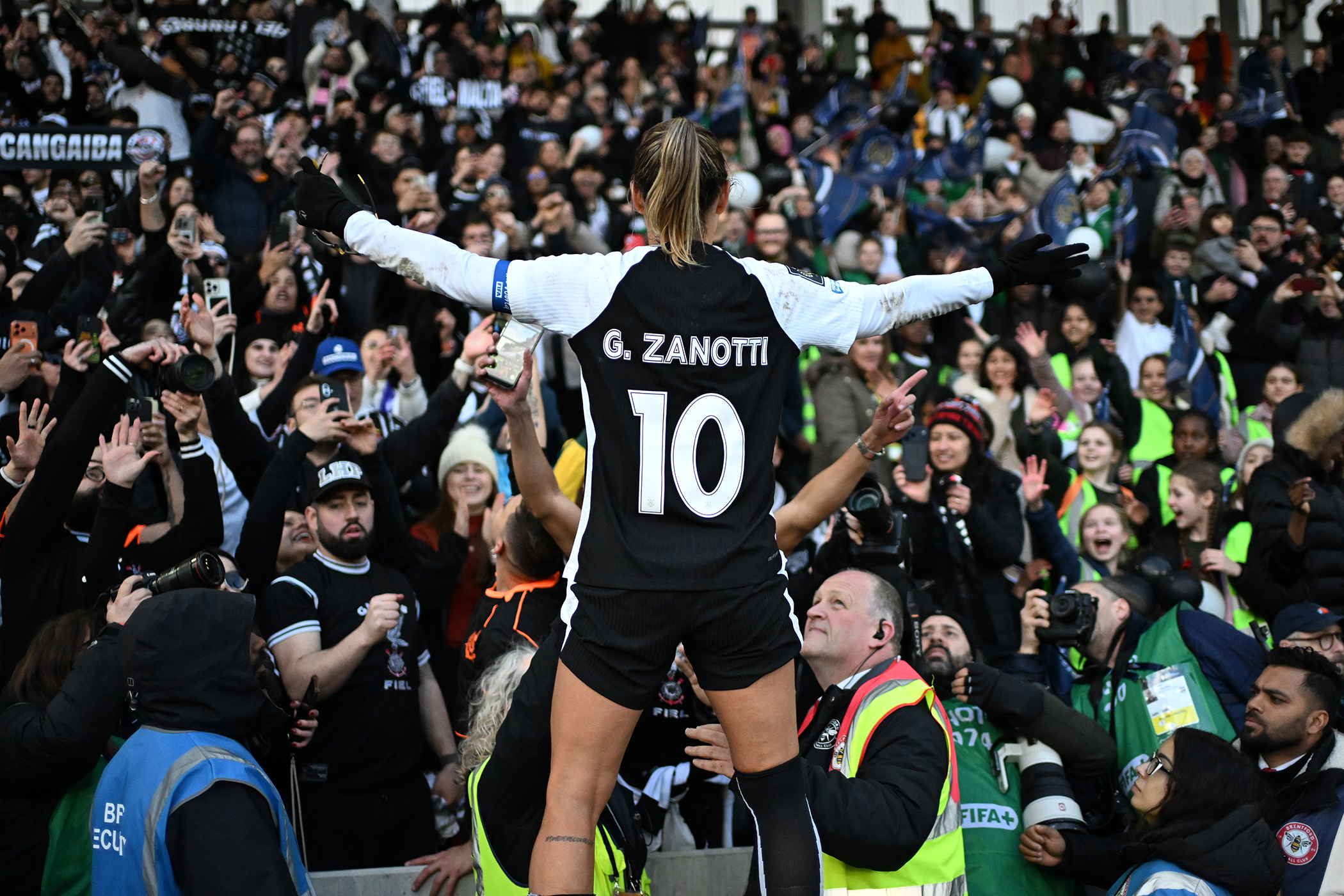On Tuesday lunchtime, 65,000 people flooded The Mall to watch an open-top bus crawl its way down towards Buckingham Palace. On board were the England players and staff, complete with their European Championship trophy. Three years on from when they first won it in 2022, close to 10 times as many people were on the streets watching.
That win in 2022 was a watershed moment for women’s football in England. Viewing figures rose and stadiums sold out as the players became household names. Yet before the Lionesses headed to Switzerland at the start of July, research from the Women’s Sport Trust revealed that the Women’s Super League had seen a 10 per cent decline in attendances and 35 per cent decline in broadcast audiences.
Visibility has obviously been a key driver for the growth of women’s football. With no international tournament last summer after Team GB failed to qualify for the Olympics, interest decreased. There are immediate signs that this summer’s success will change that. Searches for women’s football increased by 39 per cent in July as compared with June on the Football Association’s Find Football website.
Yet sustaining the interest generated now takes work.
“You’ve got to find ways to get to girls that’s not just watching 90 minutes because if you are a 13-year-old who is new to football, that’s probably not going to hook you,” says Ceylon Andi Hickman, director of external relations at the charity Football Beyond Borders.
“Unless you get them going to matches, they are not going to feel that real connection to it.”
The WSL’s new broadcast deal with Sky will see more matches being shown on television but also more matches behind a paywall. While it is a significant boost to the revenues of WSL sides, there is a risk that girls end up feeling “locked out” of the sport.
“People think if it hits the mainstream, it will catch everyone but it won’t. It might catch the girls who sit down with their families and watch BBC One. It won’t catch the girls whose parents are out working or they’re having to cook or clean or care. It takes additional structural investment.”
Related articles:
One significant difference between this summer’s win and the one in 2022 is the visibility of Black and mixed-race players within the team. In 2022, the entire starting XI was white, whereas this summer, Lauren James started every game while Jess Carter started all but one. Michelle Agyemang was also England’s hero after she scored the equalisers against Sweden and Italy.
“They’re seeing themselves more visibly,” says Hickman. “They feel they can connect with someone like Agyemang in terms of her name, her family, her lifestyle, her faith, her heritage. There will be things in her life that mirror things that are in their lives. That’s the narrative I was getting from the girls watching her.”
Newsletters
Choose the newsletters you want to receive
View more
For information about how The Observer protects your data, read our Privacy Policy
Yet the tournament also brought home the reality of what being a visible Black player can be like. Prior to the semi-final, Carter released a statement on Instagram about the online racist abuse she was receiving.
“From the start of the tournament I have experienced a lot of racial abuse,” she wrote. “Whilst I feel every fan is entitled to their opinion on performance I don’t agree or think it’s OK to target someone’s appearance or race.”
In response, the England team decided that they would no longer take the knee prior to kick-off, as they had been doing since 2020.
Liz Ward, a diversity and inclusion consultant within sport, says that the way the media talks about Black players can have far-reaching negative consequences.
“There is an undeniable correlation to the outweighed critique or outweighed invisibilising of Black players’ contributions and the empowerment that racist people feel in taking that critique and making it something more toxic,” she says.
In recent memory England manager Mark Sampson was found to have made comments that were “discriminatory on grounds of race” but Ward thinks there has been a very obvious culture shift.
On Tuesday, the England manager Sarina Wiegman’s delight at being surprised on stage by Nigerian artist Burna Boy was one of the moments of the day. Wiegman had previously revealed that his song For My Hand was her most played track in 2023.
“When you’ve got an England manager who knows all the words to Burna Boy, that is one hell of a difference,” says Ward. “This team actually does have a chance to bring the conversation to racism, if they choose to.”
As the work begins to ensure that this tournament has a longstanding legacy, the England team will also start going through their own changes. They have already announced that they will play the Asian Champions, China, at Wembley in November as they begin a new cycle aiming at the 2027 World Cup in Brazil.
Assistant coach Arjan Veurink, who has been part of Wiegman’s backroom staff since she joined England in 2021, will move on to become the manager of the Netherlands team. Wiegman has appointed Janneke Bijl and Arvid Smit to continue the Dutch connection on the bench.
Despite England’s eventual success, few will be under the illusion that they played well at the tournament, so the opportunity to refresh the coaching staff may well be a positive. Whether the squad also gets refreshed over the next two years is an open question.
There were high-profile retirements from Ellen White and Jill Scott after 2022. This time round the retirements took place prior to the tournament but all eyes will be on whether Millie Bright makes a return to the England set-up having withdrawn from selection prior to Euro 2025.
For England, the expectations about what this team can achieve will remain incredibly high, both on and off the pitch. The Lionesses wear lightly the burden that sportswomen face to excel at their profession as well as leading on social problems away from it. Yet as they danced in front of Buckingham Palace to Heather Small performing ‘Proud’, their choice for song of the tournament, it was an opportunity to revel in the joy of the moment.
Photo by Justin Setterfield/Getty



